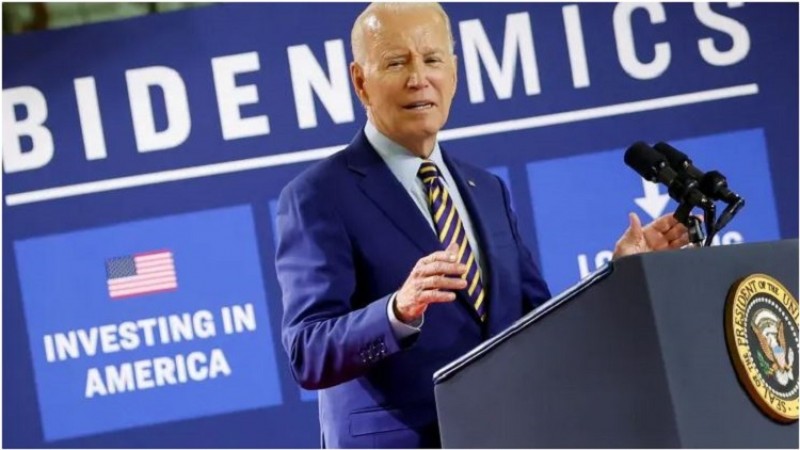
Former President Trump's recent comments expressing hope for an economic crash in 2024 have sparked criticism from President Biden. Trump's remarks, aired on Lindell TV, drew sharp condemnation from the White House, labeling them as self-serving and harmful to hardworking Americans.
Reacting to Trump's statement, White House spokesman Andrew Bates emphasized a leader's responsibility to prioritize the well-being of the American people. Bates highlighted that it's never acceptable for a leader to wish economic hardship upon citizens for their political gain.
Trump's reference to Herbert Hoover, who presided over the Great Depression following the 1929 stock market crash, drew attention to the repercussions of economic downturns. The Great Depression's enduring legacy of hardship, reflected in Hoovervilles—makeshift settlements for the homeless—serves as a stark reminder of the human toll of economic crises.
Economists have forecasted a potential economic slowdown in 2024, though a consensus on an impending recession remains uncertain. While there were fears of a recession last year, it never materialized. A recession is typically identified by two consecutive quarters of negative gross domestic product (GDP), with employment and production data serving as significant indicators.
Although 2023 witnessed economic strains like layoffs and record inflation, recent data indicates signs of recovery, offering hope for improvement. The White House utilized Trump's comments as an opportunity to highlight Biden's economic accomplishments and contrast them with the previous administration's policies.
Bates emphasized the positive economic indicators under Biden, citing surging consumer sentiment and decreasing inflation rates. He underscored the importance of continuing Bidenomics' successful economic growth, job creation, and cost reduction, contrasting it with MAGAnomics, which economists warn could exacerbate inflation through tax incentives favoring wealthy interests.
Despite high consumer spending levels in 2023, consumers are yet to witness tangible reductions in living costs, attributing this to Biden's economic policies. Trump, leveraging this economic dissatisfaction, has campaigned on his administration's purported economic successes, though his term also witnessed a stock market crash in 2020 amidst the onset of the pandemic.
As Biden's economy remains a focal point in his reelection campaign, the contrast between the two administrations' economic approaches continues to shape the political discourse.
Read More:
US Appeals Court Questions Trump's Immunity Claim
Biden Warns of Trump's Threat in 2024 Election, Highlights Capitol Attack